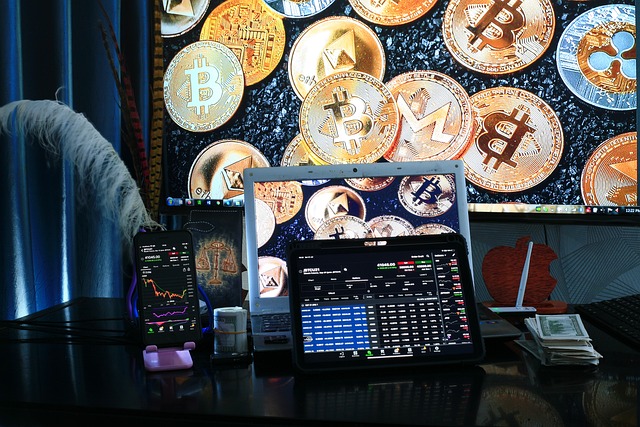The Evolving Landscape of Crypto Trading: A Comprehensive Guide for Aspiring Traders
Cryptocurrency trading is an exhilarating yet intricate domain, drawing in thousands of individuals intrigued by the prospect of financial gain and technological innovation. However, the volatile nature of digital assets means that navigating this space requires a deep understanding of the market, strategic planning, and a keen awareness of one’s own risk tolerance. In this article, we will explore the multifaceted world of crypto traders, their strategies, tools, challenges, and the philosophical aspects underpinning their practice.

Understanding the Basics of Crypto Trading
What is Crypto Trading?
At its core, crypto trading involves buying, selling, and exchanging cryptocurrencies in a bid to earn profits. Unlike traditional stock markets, cryptocurrency markets operate 24/7, allowing for rapid transactions and constant price fluctuations. This dynamic availability can be both exciting and intimidating for traders.
Types of Cryptocurrency Traders
Traders generally fall into several categories based on their strategies and timeframes:
- Day Traders: These traders capitalize on small price movements within a single day, often executing multiple trades to maximize profits.
- Swing Traders: Swing traders aim to take advantage of price "swings" over days or weeks, holding positions longer than day traders but shorter than long-term investors.
- Scalpers: Scalping involves making dozens or hundreds of trades in a single day, capitalizing on small price gaps.
- Long-Term Investors: Also known as "HODLers," these individuals buy cryptocurrencies with the intention of holding them for an extended period, ignoring short-term market fluctuations.
Essential Tools and Platforms for Crypto Traders
Choosing the Right Exchange
The choice of an exchange is crucial for any crypto trader. Major exchanges like Binance, Coinbase, and Kraken offer various tools, but understanding their fee structures, security measures, and supported cryptocurrencies is essential. Personal preference plays a significant role here; some traders prefer user-friendly interfaces, while others may prioritize advanced trading features.
Trading Tools and Resources
Effective trading requires access to real-time data and advanced analytical tools:
- Charting Tools: Platforms like TradingView provide sophisticated charting solutions that are indispensable for technical analysis.
- News Aggregators: Keeping abreast of the latest happenings in the crypto world through platforms like CoinDesk or CryptoSlate can give traders an edge.
- Portfolio Trackers: Tools like Delta or CoinStats help monitor portfolio performance across various exchanges and assets.
Understanding Market Indicators
Knowledge of market indicators, such as moving averages, RSI, and MACD, is crucial for making informed trading decisions. Personally, I find technical indicators to be reliable allies. They help decipher market trends, although it’s essential to avoid relying on them solely. Combining technical analysis with fundamental insights is often where the real success lies.
Strategies for Successful Trading
Developing a Trading Plan
A well-crafted trading plan acts as a roadmap, guiding traders through various scenarios. It should outline profit goals, risk tolerance, and criteria for entering and exiting trades. In my opinion, a clear strategy is crucial not only for making informed decisions but also for maintaining emotional balance during the tumultuous trading process.
Risk Management Techniques
To thrive in the crypto trading arena, risk management is indispensable. Here are several effective risk management techniques:
- Diversification: Don’t put all your eggs in one basket. Spread investments across various cryptocurrencies to mitigate risk.
- Setting Stop-Loss Orders: This tool automatically sells a cryptocurrency when it reaches a predetermined price, limiting potential losses.
- Limiting Exposure: Only allocate a small percentage of your capital to any single trade.
Keeping Emotions in Check
Emotions can derail even the most well-thought-out trading strategies. The fear of missing out (FOMO) can lead to hasty decisions, while panic during market downturns can exacerbate losses. I advocate for traders to cultivate patience and discipline, focusing on long-term goals rather than short-term market noise.

The Challenges of Crypto Trading
Market Volatility
The cryptocurrency market is notorious for its volatility, presenting both opportunity and risk. Prices can soar or plummet within minutes, often driven by social media buzz or public sentiment. While some traders thrive in this environment, others may find it overwhelming. Personally, I believe that embracing volatility can be advantageous if one approaches trading with a well-defined strategy and robust risk management practices.
Regulatory Issues
As cryptocurrencies continue to gain popularity, regulatory bodies around the world are scrambling to implement frameworks that govern their use. This can lead to uncertainty and sudden market shifts based on regulatory announcements. Understanding the geopolitical landscape and its influence on cryptocurrency can provide traders with insights that enhance their decision-making process.
The Future of Crypto Trading
The Rise of Decentralized Finance (DeFi)
Decentralized Finance (DeFi) is changing the way we think about trading and investing. It aims to recreate traditional financial systems—like lending and trading—on the blockchain. I believe that DeFi offers immense potential for traders looking to diversify their portfolios and engage with innovative financial products.
The Advent of Trading Bots and AI
As technology continues to evolve, the use of trading bots and artificial intelligence is becoming more prevalent in the crypto trading sphere. These tools can analyze vast amounts of data and execute trades faster than any human. However, while I see the benefits, I also caution traders to remain vigilant and not rely solely on automated systems. A human touch is often invaluable in interpreting market nuances.
Conclusion
In conclusion, crypto trading is an endeavor that can be both profitable and perilous. As the landscape continues to evolve, aspiring traders must equip themselves with knowledge, tools, and emotional resilience to navigate this captivating world. Each trader’s journey is unique, marked by personal goals and experiences. As we look ahead, I encourage anyone considering this path to approach it with curiosity, caution, and a fervent desire to learn.